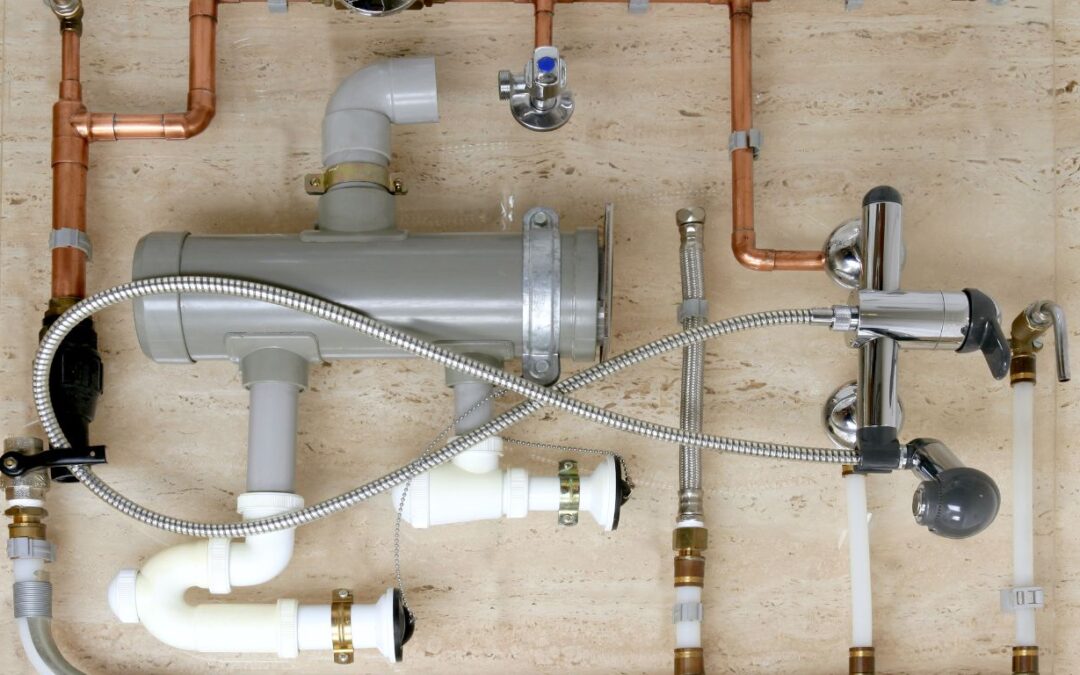Copper: The Tried and True
Pros:
- Durability and Longevity: Copper pipes can last over 50 years, making them an excellent long-term investment.
- Heat Resistance: Copper is highly resistant to heat, making it suitable for both hot and cold water.
- Reliability: It’s less likely to corrode or leak compared to some alternatives.
Cons:
- Cost: Copper is expensive, both in terms of materials and installation.
- Rigidity: It’s less flexible, which can make installation more challenging, especially in tight spaces.
- Potential for Theft: Copper has a high resale value, making it a target for theft.
PVC: Affordable and Versatile
Pros:
- Cost-Effective: PVC is significantly cheaper than copper, making it a budget-friendly option.
- Easy Installation: Lightweight and easy to work with, reducing labor costs.
- Corrosion Resistance: Unlike metal pipes, PVC doesn’t rust or corrode.
Cons:
- Temperature Sensitivity: Not suitable for high-temperature water as it can warp or degrade.
- Lower Lifespan: Generally lasts around 25-40 years, which is less than copper.
- Potential for Chemical Leaching: Some concerns about chemicals leaching into the water from PVC pipes.
PEX: The Modern Contender
Pros:
- Flexibility: Extremely flexible, making installation easier, especially in tight spaces.
- Cost: Less expensive than copper and often comparable to or cheaper than PVC.
- Resistance to Scale and Chlorine: Doesn’t corrode or develop scale buildup.
Cons:
- UV Sensitivity: PEX pipes can degrade when exposed to sunlight, limiting outdoor use.
- Potential for Pinhole Leaks: In rare cases, PEX can develop small leaks over time.
- Connections: Requires special fittings and tools for installation, which can add to costs.
Making the Right Choice for Your Home
So, which plumbing material should you choose? Here are some factors to consider:
- Budget: If cost is a primary concern, PVC might be your best bet. It offers a good balance of affordability and durability.
- Installation: For DIY projects or homes with complex layouts, PEX’s flexibility can save time and hassle.
- Longevity: If you’re planning to stay in your home for decades and want the most durable option, copper is hard to beat.
Conclusion
Choosing the right plumbing material is crucial for the safety, efficiency, and longevity of your plumbing system. Each material—Copper, PVC, and PEX—has its strengths and weaknesses. By considering your specific needs and circumstances, you can make an informed decision that ensures reliable plumbing for years to come.
Do you have more questions about plumbing materials or need expert advice? Feel free to reach out to us at Ask Plumbing and Heating. We’re here to help! We’re proud to serve Salem, Essex, Lynn, Haverhill, Rowley, Georgetown, Denver and nearby areas
FAQs
Q: Can I mix different types of plumbing materials? A: Yes, but it requires the right fittings and an understanding of each material’s properties. Consulting a professional is recommended.
Q: Which material is best for hot water lines? A: Copper is excellent for hot water due to its heat resistance, but PEX is also a good option if flexibility and cost are considerations.
Q: How do I know if my plumbing needs an upgrade? A: Signs like frequent leaks, discolored water, or low water pressure can indicate it’s time for an upgrade.
Q: Is PEX safe for drinking water? A: Yes, PEX is safe for drinking water and is commonly used in residential plumbing systems.
